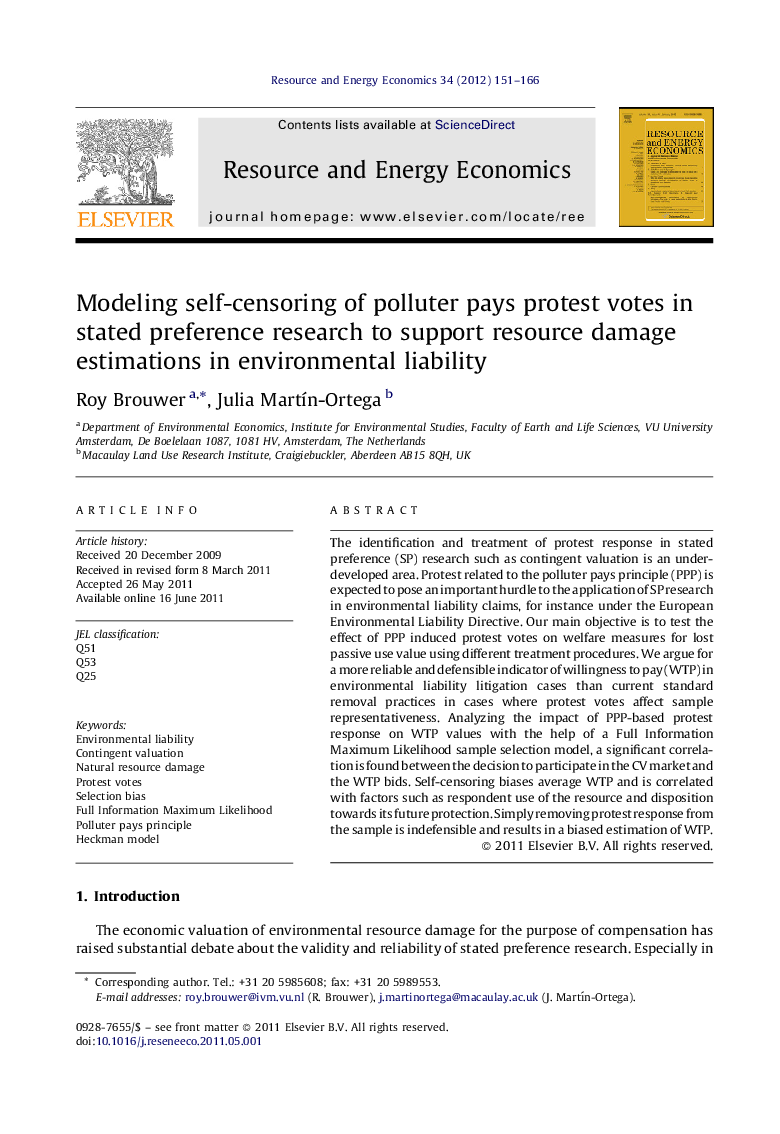| Article ID | Journal | Published Year | Pages | File Type |
|---|---|---|---|---|
| 985781 | Resource and Energy Economics | 2012 | 16 Pages |
The identification and treatment of protest response in stated preference (SP) research such as contingent valuation is an underdeveloped area. Protest related to the polluter pays principle (PPP) is expected to pose an important hurdle to the application of SP research in environmental liability claims, for instance under the European Environmental Liability Directive. Our main objective is to test the effect of PPP induced protest votes on welfare measures for lost passive use value using different treatment procedures. We argue for a more reliable and defensible indicator of willingness to pay (WTP) in environmental liability litigation cases than current standard removal practices in cases where protest votes affect sample representativeness. Analyzing the impact of PPP-based protest response on WTP values with the help of a Full Information Maximum Likelihood sample selection model, a significant correlation is found between the decision to participate in the CV market and the WTP bids. Self-censoring biases average WTP and is correlated with factors such as respondent use of the resource and disposition towards its future protection. Simply removing protest response from the sample is indefensible and results in a biased estimation of WTP.
► PPP protest limits use of SP research in environmental liability cases. ► Common practice of censoring or recoding protest responses is indefensible. ► Protest votes affect sample representativeness (self-selection bias). ► Need for preference calibration in welfare estimation procedures. ► FIML selection model to account for correlated choices in repeated choice experiment.
